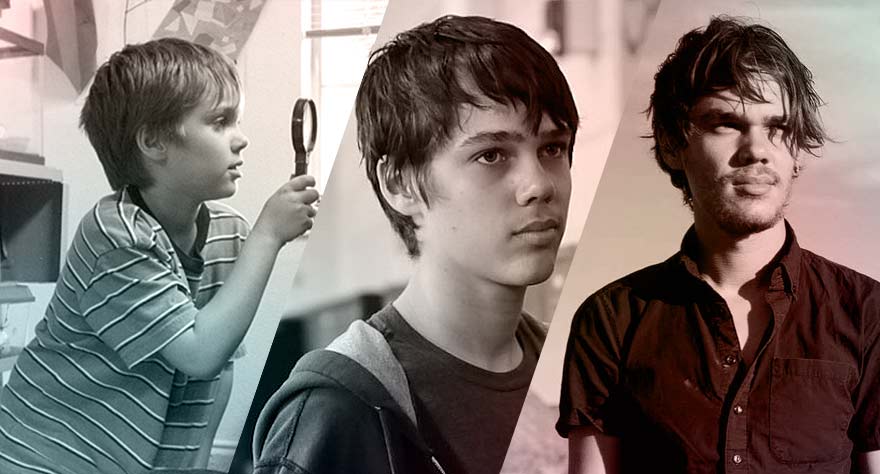Why 2014 Wasn’t A Bad Year For Movies

I’m certainly not the first to admit 2014 wasn’t a ground-breaking year for cinema—Todd McCarthy from The Hollywood Reporter conceded it was “far from a great year,” Robbie Collin at The Telegraph declared it “a relatively placid year,” and Dana Stevens of Slate confessed it had “been kind of a rough year.” And I’m sure I won’t be the last to say 2014 wasn’t phenomenal. But that doesn’t mean it was a horrible year for movies. In fact, our overall favorite film of the year, Richard Linklater’s Boyhood, wasn’t just the best film of the year—it’s one of the best film of the past five years—at least in the humble opinion of this writer. So if it wasn’t such a poor year, why do many critics insist on calling it one? It might have something to do with release dates.
Movie studios spend a lot of time figuring out when they should release their film. And there’s a lot of different factors at play in this decision. The most important consideration is what kind of film they’re promoting. Summer months are for blockbuster movies like the latest Michael Bay film or the latest reboot of a comic book franchise. If a studio believes they have a flop on their hands they’ll screen it in what’s called the “dump months,” time periods which follow high attendance months when commercially promising movies are released. The dumping grounds are typically in the months of January/February and August/September. Now when a studio knows (or at least thinks) they have a critical hit, they’ll save it for an award season push sometime between October and December. There are outliers of course, but the movie industry has been around for a long time and have this strategy pretty much ironed out.
The Huffington Post recently did a study which found 77% of Oscar Best Picture winners were released between October and December, the three months before the Academy releases their list of Oscar nominations. Which makes perfect sense when you think about it. Films that remain fresh in the memories of voting members would logically increase their chances of being nominated. Studios are aware of our short-term memories and seize the opportunity by spending large amounts of money for an Oscar campaign.
The same basic principles of short-term memory applies to critics and moviegoers too. Our perception of an entire year’s worth of movies could easily be effected by the movies at the end of the year. Which might explain why 2013 felt like a speculator year for movies. Last year was stacked with good Oscar season releases, resulting in an exciting Oscar race led by two films which were released in October; 12 Years A Slave and Gravity. In fact, not a single film in last year’s Best Picture category was released before October. While it’s still too early to make definitive predictions for this year’s Oscars, since nominations haven’t even been announced yet, Boyhood seems to be the front-runner; a film that received the dreaded August wide release date.

Ellar Coltrane growing up in Boyhood
Boyhood is not alone. On our list of the 20 Best Films of 2014, 10 of those films were released before October. That means exactly half of our favorite films of the year were outside that favorable award season release zone. And most of them weren’t even close. All but one of those 10 films were released in June or even earlier.
Furthermore, several of our year-end favorites defied all odds by screening in the first few months of 2014. Specifically, The LEGO Movie which won over audiences all the way back in February and The Grand Budapest Hotel back in March, yet still found their way on Metacritic’s Top 20 list at the end of the year. Other great films including Under the Skin, Blue Ruin, Only Lovers Left Alive, and Oculus reached audiences as early as April. It’s impossible to predict what the impact would’ve been if these films waited for an October release instead, but they’d have better odds of landing higher on year-end lists.
Late season standouts this year included Alejandro González Iñárritu’s dazzling Birdman, Dan Gilroy’s creepy Nightcrawler, David Fincher’s murder mystery Gone Girl, Damien Chazelle’s brutal Whiplash, and Ava DuVernay’s vital Selma. But aside from Birdman, it was rare to find any of those picked as the Best Film of the year. There were several major studio films like Fury, The Theory of Everything, Interstellar, The Hobbit: The Battle of the Five Armies, and The Imitation Game which didn’t meet expectations and only made some Top 10 lists. Not to mention complete duds such as Unbroken, Annie, The Gambler, and Exodus: Gods and Kings. Even critic favorite Paul Thomas Anderson failed to crack most Top 10’s with his highly anticipated, but ultimately perplexing, Inherent Vice.
So what does all of this mean? Perhaps the batch of underwhelming movies towards the end of the year, combined with the excellent but distance memory of the first half, altered people’s overall impression of 2014 in terms of its movies. Maybe 2014 wasn’t such a downer year after all, and it was just more front-loaded than we’re used to. So if the year’s releases had been reversed, the discussion might just have been about how strong 2014 was for movies.
